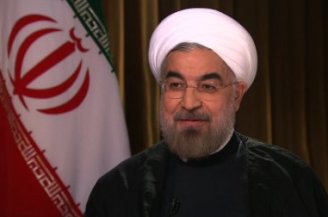 Iran and six world powers entered a second day of talks Wednesday over Tehran's nuclear ambitions, after what appeared to be a positive opening exchange.Both sides struck a tone of cautious optimism after the first day of negotiations in Geneva
Iran and six world powers entered a second day of talks Wednesday over Tehran's nuclear ambitions, after what appeared to be a positive opening exchange.Both sides struck a tone of cautious optimism after the first day of negotiations in Geneva
Iran, which wants the six powers to recognize what it says is the peaceful nature of its nuclear energy pursuits, laid out confidential proposals Tuesday morning, with further talks in the afternoon."For the first time, we had very detailed technical discussions," a senior U.S. State Department official said. A spokesman for the European Union's foreign policy chief called Iran's presentation "very useful."
Iranian Deputy Foreign Minister Abbas Araqchi, who is taking a lead role in the negotiations, said Tuesday that the "negotiation's environment was positive," according to Iran's semiofficial Fararu news agency.
The two-day talks in Geneva bring together Iran's representatives with those from the so-called P5+1 -- the United States, Russia, China, France and Britain, all countries with permanent seats on the U.N. Security Council, plus Germany.
U.S. Under Secretary of State Wendy Sherman and members of the U.S. delegation held a bilateral meeting with Araqchi and Iranian delegates Tuesday evening, the senior State Department official said. The Iranians also held bilateral talks with other delegations.
"The discussion was useful, and we look forward to continuing our discussions in tomorrow's meetings with the full P5+1 and Iran," said the State Department official.
'Ball is in Iran's court'
Many in the West fear Iran is pursuing the development of a nuclear bomb, but Iran -- slapped with sanctions because of its program -- has always maintained that it is developing nuclear energy capabilities for peaceful purposes only.
EU foreign policy chief Catherine Ashton is leading the talks for the P5+1 bloc, while Iranian Foreign Minister Javad Zarif is leading the Iranian delegation.
Ashton's spokesman, Michael Mann, said Tuesday that the mood was one of "cautious optimism" but that the "ball is in Iran's court" to respond to the bloc's concerns.
The P5+1 bloc put forward its own proposals at a meeting with Iran in Kazakhstan in the spring, and these remain on the table, Mann told reporters.
Critics have expressed suspicions about Iran's uranium enrichment, fearing that Iran may secretly be transforming nuclear fuel into atomic bomb-grade materials.
Iran insists the West must accept its right to enrich nuclear fuel for civilian purposes as allowed under the Treaty on the Non-Proliferation of Nuclear Weapons, to which Iran is a signatory.
Thawing relations?This week's high-level talks in Geneva are the first such since the election of President Hassan Rouhani this summer raised the prospect of a shift in direction from Iran.
During a visit to the U.N. General Assembly in September, Rouhani's diplomatic approach raised hopes in the West of a thaw in relations with Tehran and progress in negotiations on its nuclear program.
Rouhani's visit culminated in a phone call with U.S. President Barack Obama and a meeting between U.S. Secretary of State John Kerry and Zarif.
It was the first such high-level contact between the two sworn enemies since Iran's 1979 revolution, which sent relations between the two into a deep freeze.
In another sign of easing tensions, Iran's state news agency IRNA reported Wednesday that Iran and Britain plan to introduce their nonresident charges d'affaires -- the level of diplomat below ambassador -- within two weeks.
Tehran and London agreed to the step on October 8, after a telephone call between Iran's Zarif and his British counterpart, William Hague. The diplomats' mission will be to improve relations on the way to the eventual reopening of embassies, Hague said then.
Asked about Wednesday's IRNA report, Britain's Foreign and Commonwealth Office told CNN that an announcement would be made in due course.
Britain closed its embassy in Iran and evacuated its entire diplomatic staff from that country in late 2011 after hundreds of student protesters stormed the embassy and another British diplomatic compound. Hague also ordered the Iranian Embassy in London to close immediately, saying that Iran was in breach of its international obligations to protect diplomatic missions.
Israel warns against easing sanctions
As the latest talks in Geneva continue, Israel has warned against easing the punishing economic sanctions imposed against Iran too soon.Such a move would be a "historic mistake," Israeli Prime Minister Benjamin Netanyahu said Tuesday.
"Now is an opportune moment to reach a genuine diplomatic solution that peacefully ends Iran's military nuclear program," he said. "This opportunity can only be realized if the international community continues to place pressure on Iran, because it is that pressure that has brought Iran back to the negotiations in the first place."
Ali Larijani, Iran's powerful parliamentary speaker and a close associate of the nation's supreme leader, Ayatollah Ali Khamenei, said last week that Iran is serious about resolving the dispute over its nuclear program.
It is keen to resolve the issue "in a short period of time," he told CNN's Christiane Amanpour in an exclusive interview from Geneva. "From Iran's side, I can say that we are ready," he said.
CNN's Jim Sciutto reported from Geneva and Laura Smith-Spark wrote in London. CNN's Carol Jordan, Saad Abedine, Michael Schwartz and Elise Labott contributed to this repo























































































































































































































































































































































